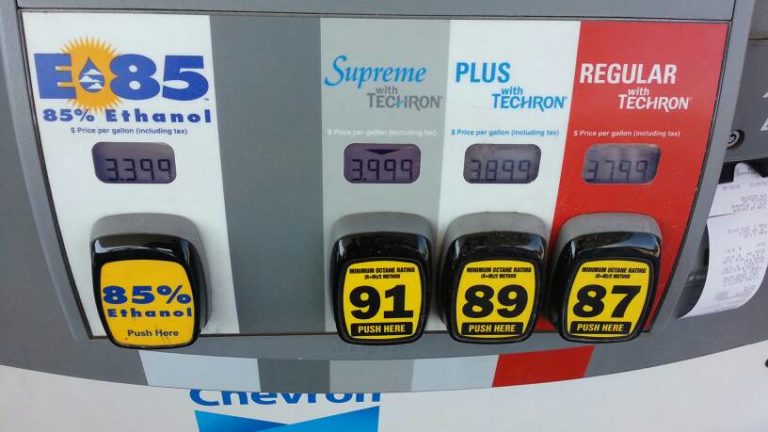
With the ever-increasing dependency on foreign fossil fuels, many countries are looking for alternative fuel sources. Recently there have been lots of discussions on alternative fueled vehicles like electric cars, hybrid vehicles, hydrogen cells, natural gas, and ethanol.
Flexible fueled vehicles have been around for quite a few years. Many car owners may even be driving a flex fuel vehicle or FFV and not even know it. But what is a flex fuel vehicle and is it a good fuel source alternative? This article answers these questions and further discusses how a car owner can tell if they are driving an alternative fuel vehicle.
What is a Flex Fuel Vehicle or FFV?
A flex fuel vehicle is a car or truck that can operate using two types of fuels. Typically they can run on regular gasoline or a mixture of gasoline and ethanol. Ethanol is an organic fuel source that is alcohol based and is fermented and distilled using organic materials. Although many types of organic materials can be used to manufacture ethanol, the most common types of materials are crops like corn, barley, and wheat.
Besides regular gasoline, the alternative fuel that can be used in an FFV is a mixture of up to 85% ethanol and the remainder regular gasoline. This fuel mixture is commonly referred to as E85. Finding a service station that provides E85 can, however, be challenging in certain geographical areas.
Identifying Flex Fuel Cars and Trucks
Flex fuel vehicles have been manufactured by car markers since the 1980’s. An FFV needs minimal modifications to operate on E85 and thus look identical to vehicles that operate on regular gasoline only. Since an FFV looks like any other vehicle, a car owner could be driving an FFV and not even realize it. Some of the methods that could identify a vehicle that can operate using E85 are
- FFV or E85 maybe printed on the fuel cap
- FFV or E85 maybe printed in the fuel door
- most vehicles will have an FFV emblem on the exterior car body
- under the engine hood emissions sticker
- vehicle identification number (VIN)
- contact a factor authorized car dealer
Are Flex Fuel Vehicles a Viable Alternative to Fossil Fuels?
Since ethanol is used as a gasoline alternative in flex-fuel vehicles, the cost to produce ethanol is dependent on the cost of organic materials used like corn, barley, and wheat. According to E85 Prices, the current U.S. National average price for ethanol on the date of this article is $2.63 compared to gasoline at $3.06, a difference of 14.1%.
Looking at basic economic theory, as demand increases, supply decreases and the prices tend to rise. If ethanol demand were to increase, supply would naturally decrease. This could cause a spike in the price of ethanol.
Another important consideration is the actual miles per gallon (MPG) that a vehicle gets from ethanol versus gasoline. Depending on various factors, ethanol typically gets about 27% worse MPG than gasoline. With current prices, it would cost more to operate an FFV on E85 than it would on regular gasoline. Then again, using ethanol on a wider scale could significantly reduce dependency on foreign oil.